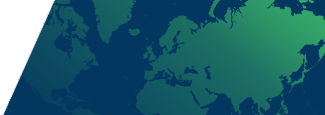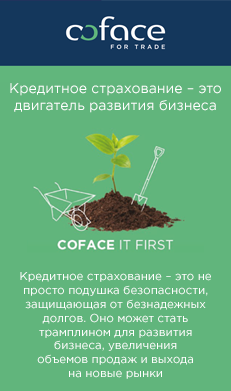

Bulgaria
Synthesis
major macro economic indicators
| 2020 | 2021 | 2022 | 2023 (e) | 2024 (f) | |
|---|---|---|---|---|---|
| GDP growth (%) | -4.0 | 7.6 | 3.9 | 1.7 | 2.2 |
| Inflation (yearly average, %) | 1.2 | 2.8 | 13.0 | 8.5 | 3.5 |
| Budget balance (% GDP) | -3.8 | -4.0 | -2.9 | -3.0 | -3.0 |
| Current account balance (% GDP) | 0.0 | -1.9 | -0.7 | 1.0 | 0.0 |
| Public debt (% GDP) | 24.5 | 23.9 | 20.3 | 23.5 | 24.3 |
(e): Estimate (f): Forecast
STRENGTHS
- Diversified production base (Bulgaria is a major producer and exporter of cereals and is virtually self-sufficient in food)
- Tourism potential
- Low production costs and good price competitiveness
- Low public debt
- Monetary stability, with the Bulgarian lev pegged to the euro
WEAKNESSES
- Fragmentation of the political landscape complicates the establishment of a stable government
- Inefficient public services and judicial system (influence of business community), weak infrastructure
- Corruption and organised crime (No. 72 in Transparency International's Corruption Perceptions Index 2022, making it the second-lowest ranking country in the EU)
- Lack of skilled labour
- Declining and relatively poor population (GDP per capita = 59% of the EU average in 2022, the lowest in the EU)
- Large informal economy
- Heavy dependence on coal and hydrocarbons for electricity
Risk assessment
Domestic demand is the main growth driver
After undergoing a sharp economic slowdown in 2023, Bulgaria’s growth prospects are expected to improve in 2024. They are underpinned, first and foremost, by a recovery in domestic demand. The decline in the working population will once again boost real wages, and hence household purchasing power. However, social transfers (2.7% of GDP in 2023), initiated in 2022 and extended to 2024, will be revised downwards in view of an expected sharp fall in consumer price inflation. At the same time, private investment will reach record levels, due in the first place to the financial support provided by the National Recovery and Resilience Plan (NRRP, 2021-2026). This programme aims to remedy the systemic weaknesses of the Bulgarian economy (energy, digital and environmental transition) with the help of subsidies from European funds (RRF, estimated at EUR 6.9 billion euros, or 8% of 2022 GDP over the 2021-26 period) and national funds (EUR 3.5 billion, a third of which from public funds). Investment could also be boosted by lower credit costs in the second half of the year. The Bulgarian Central Bank (BNB) is keeping the lev pegged to the euro (BGN 1.96 per euro), in line with the ECB's key rates. However, inflationary pressures could dim this bright economic outlook. In November 2023, the government officially brought forward from December to March 2024 the date on which the exemption granted by the European Commission, allowing it to exceptionally import Russian oil by sea, comes to an end. The sudden cessation of these deliveries will force the Balkans' main refinery, owned by Lukoil, to operate with non-Russian oil, which is much more expensive to import and potentially more difficult to process. Rising costs could be passed on to the inflation outlook for 2024 just as the country is emerging from a particularly challenging period which saw annual inflation reach 13% in autumn 2022. In any case, barring a new external shock to oil and food supplies, inflation should continue its downward trend in 2024, but will still remain above the Maastricht criterion, which could delay Bulgaria’s entry into the eurozone by 2025. Furthermore, despite the commitments made in the NRRP, the country's electricity production is still largely dependent on coal (30% in 2022), oil (26%), natural gas (11%) and nuclear power (18%), with the only two reactors in service running on Russian fuel. Nevertheless, the use of renewable energies (11% of its energy production in 2022) and the supply of electricity from French and Swedish nuclear power, starting in the second half of 2024, should partially remedy this situation. At the same time, exports (27% of GDP in 2022) will make a positive contribution to growth, and will be slightly boosted by the slow economic recovery of its main Western European trading partners (Germany, Romania, Italy) and by a favourable base effect owing to the weak performance of 2023. Similarly, the tourism sector will continue to grow in 2024, having already exceeded its pre-Covid level in 2023.
On the road to EMU accession
In contrast to 2022, the current account balance returned to a slight surplus in 2023. The trade surplus once again posted a positive performance due to slower growth in imports thanks to accumulated inventories of petroleum products and metals prior to the war in Ukraine than in exports, which were slowed by weak European demand and the European embargo banning exports of Russian oil products within the EU. However, the trade balance will be on the verge of returning to deficit in 2024 as the level of imports rises with the expiry of these inventories and the recovery of domestic demand. On the other hand, the surplus on the services balance strengthened in 2023, and should continue to improve in 2024, helped by the boom in tourism and favourable terms of trade. In addition, the surplus on the secondary income account was boosted by transfers from European subsidies. The primary income account deficit widened, as the economic recession encouraged foreign companies to repatriate rather than reinvest their profits. The capital and financial accounts have been boosted by the encouraging rebound in FDI flows and the sharp increase in portfolio investment, both of which doubled between 2022 and 2023. Foreign currency reserves (covering 6 months of imports to December 2023) are sufficient to cope with any external shock and ensure the country's peg to the euro. External debt maintained its downward trend in 2023, representing 44.4% of GDP in October 2023. Some 75% of this debt is owed by the private sector, of which FDI loans and intra-group loans account for 46%.
On the budgetary front, the public deficit widened in 2023, but remained below the 3% threshold. The level of public revenues, benefiting from an increase in consumption, prices and therefore VAT income, will not have been sufficient to offset the growth in budget expenditure, which is being inflated by the rise in real wages, pensions (together accounting for 4% of 2023 GDP) and energy subsidies (0.8% of 2023 GDP). In 2024, the public deficit should stagnate. Despite the gradual reduction in energy support measures and the increase in public revenues through the increase in the minimum tax rate, the 2024 deficit will persist. The burden of public debt, after declining in 2023, will increase slightly in 2024. The outlook for euroisation in 2025 makes its limited weight all the more sustainable. Bulgaria joined the European Exchange Rate Mechanism 2 (ERM II) in 2020, granting it a minimum two-year transition period to meet the criteria for entry into the eurozone. Apart from a durably high level of inflation following the cumulative effects of the pandemic (2020) and energy (2022) crises, Bulgaria has so far met all the other Maastricht public deficit, public debt, interest rate and exchange rate criteria.
Beginning of governmental stability whose longevity remains to be seen
After two consecutive years of deep political and social crisis, marked by the organisation of five legislative elections and unsuccessful coalition attempts between 2021-2023, the Bulgarian political situation finally seems to be stabilising. Following the parliamentary elections in June 2023, the centre-right Citizens for the European Development of Bulgaria (GERB) and the liberal We Continue the Change - Democratic Bulgaria (PP-DB) finally agreed to form a government around Prime Minister Nikolai Denkov (PP-DB). Their large parliamentary majority (168 seats out of 240, including 36 seats contributed by the Movement for Rights and Freedoms party, representing the Turkish minority) and their shared pro-European stance should provide the governmental stability needed to adopt the reforms on the government's agenda. The aspiration to achieve full membership of the Schengen area and the eurozone by 2025 will benefit from this new political landscape. In this context, constitutional reforms aim to bring the judicial system into line with international recommendations, including the creation of a judicial control mechanism over the Attorney General. Similarly, in response to the behaviour of the President-elect in 2021, Rumen Radev, part of the constitutional proposal also seeks to restrict presidential power in times of crisis to prevent any abuse. On the other hand, Bulgaria is lagging on its decarbonisation plans even though energy diversification remains a major issue. In January 2023, the Bulgarian government and the European Commission entered into negotiations to soften Bulgaria's commitment to reduce the carbon emissions of its power generation by 40% by 2025. As a result of this renegotiation procedure, European payments under the NRRP will be delayed until the end of 2023. At household level, too, the European Green Deal is not unanimously supported. At the end of 2023, miners demonstrated against plans to close coal-fired power stations and mines. In any event, the ideological differences between the two coalition parties will put the government's newly-acquired stability to the test. The PP, calling itself an anti-corruption party, was created in 2021 as an alternative to the GERB, implicated in numerous corrupt practices. Both parties agreed to fight corruption. Nevertheless, mutual distrust led them to entrust the role of Prime Minister alternately to each party every nine months. The first change, scheduled for March 2024, from Denkov of PP-DB to Mariya Gabriel of GERB, could upset this balance.
On the external front, the new Bulgarian government has adopted a firmer stance towards Russia. Ukraine will benefit from extensive Bulgarian support, particularly in terms of training medical personnel and military aid (shells, ammunition). Bulgaria also continues to aspire to join the eurozone and the Schengen area. In December 2023, after 12 years of negotiation, the EU 27 finally agreed to lift controls at the EU's internal air and sea borders from March 2024. Austria finally lifted its veto in exchange for guarantees (the fight against illegal immigration), but for the time being maintains its opposition to the opening of land borders. Vienna had refused Bulgaria entry until 2022 to protest against a significant influx of illegal immigrants onto its territory. Last, Bulgaria has multiplied its international contracts to shed its dependence on Russian energy. The Greek-Bulgarian gas pipeline was already commissioned in October 2022, enabling Bulgaria to be supplied with non-Russian gas. Furthermore, in January 2024, Bulgaria replaced its Russian oil imports with crude from Tunisia, Kazakhstan and Iraq. And to secure access to the Black Sea and Ukrainian grain exports, Turkey, Romania and Bulgaria agreed to set up a maritime demining force in January 2024.
Last updated: March 2024


